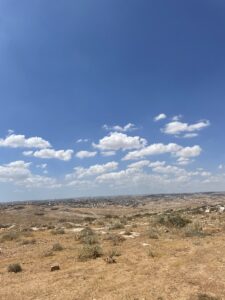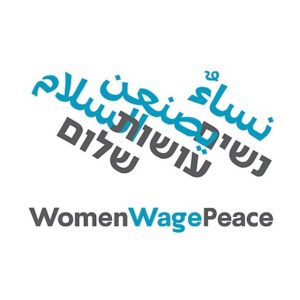By Claire Shnerson

A closer look into the importance of women in conflict mediation and the challenges they face, specifically in the Israeli-Palestinian Conflict.
Introduction:
Women are important actors in the peace process, specifically in the Israeli-Palestinian conflict because they experience unique challenges as a result of their gender. However the challenges Jewish-Israeli and Palestinian women in becoming important actors in the peace process differ from one another. For Israeli women, national security threats have always taken precedence over gender issues, pushing women’s rights to second-tier issues. Secondly, Israeli women face institutional barriers as a result of the patriarchal nature of Israeli society. Palestinian women also face two-fold barriers. The first comes from being a woman in a traditional society. The second comes from the trauma and force imposed by Israeli occupation in the disputed territories of Gaza and the West Bank.
Israeli Women’s Challenge to Peace:
Israel has some of the most egregious gendered discrepancies among developed nations. For example, a 2012 study on Israeli gender salary gaps found that the average monthly women’s wage as a percentage of men’s wages was 67% (Dagan-Buzaglo et al. 2014). Women in Israel face misogynistic practices while in mandatory military service, defined gender norms for women in family roles limit economic growth, and discriminatory divorce laws constrain women’s rights. In principle, Israel’s Declaration of Independence and other equal rights laws should protect women from facing discriminatory practices, but in reality many gender discrepancies are ingrained in real life society.
When Israel was founded in 1948, the government needed every citizen united for nation building initiatives, leaving little room for dissent against the state; and any social organization had to be created within that social context. As a result, Israeli women’s movements that developed during that time had to promote both women’s rights and national interests (Muhlbauer 2001). While women were put in equal positions as men in the workforce, they were also considered the primary homemakers. This is often known as the “double burden” because mothers come home from work to an entirely second workload of unpaid domestic labor. The gender hierarchy that exists within the home also translates to the patriarchal system that prevails in life outside the home and in government.
Another barrier that Israeli women face comes from the role of religion in government. Because of the representative nature of Israel’s government system, minority parties like the “religious right” can have undue influence in a coalition government. As a result, the patriarchal tenants of Judaism become translated into policy even for those with secular lifestyles. This affects immigration policies, security response, LGBT+ laws, and women’s rights. This creates institutional barriers that prevent women from being placed in positions of power with the same ease as men.

Palestinian Women’s Challenge to Peace:
I interviewed an employee in a Palestinian peace organization. As a Palestinian woman, she explained that part of the issue in getting Palestinian women involved in peace movements is that Palestine is a patriarchal society and that women from a young age are taught to avoid taboo topics like politics, to avoid looking strangers in the eye in public (Anonymous 1). The Palestinian Authority also has a two tier judicial system; the first is the Supreme Court Law of the PA and the second is tribal law. She explains that in many cases, if a crime is committed against a woman or a young girl, the two families of the affected parties will figure out some sort of deal instead of calling the police (Anonymous 1). This normally involves the perpetrator’s family compensating the victim’s family with money.
Palestinian women are also more likely than men to be enrolled in high school, at around 80% for women and 61% for men in 2017 (PCBS 2018). However, even when more women enroll in higher education and achieve a college degree, they are still significantly less likely to be employed compared to men. Seventy one percent of men participated in the workforce in comparison to 19% of women in 2017 (PCBS 2018). Another barrier stems from a lack of funding for public child care. Because Palestinian women are usually the homemakers of the family, they are guarded with the responsibility of taking care of the children. Child care is expensive and time-consuming, giving women less social opportunities to be involved in peace organizations.

Solutions:
Systemic change needs to occur within both Israeli and Palestinian society to grant women equal rights in all sectors of life. At the local level, there needs to be government subsidized child care that makes nurseries more affordable and accessible to everyone. There also needs to be an increase in female negotiators during formal peace meditations, alongside an increase of women working in both NGOs and governmental positions. Hopefully, with these changes, women can finally be utilized in creating lasting peace for both sides of the Israeli-Palestinian conflict.
Sources:
Dagan-Buzaglo, Noga, et al. “Gender Salary Gaps in Israel.” ADVA Center, May 2014, https://adva.org/wp-content/uploads/2014/12/EqualPay_English_mail1.pdf. Accessed 26 June 2022
Muhlbauer, Varda. “Israeli Women and the Peace Movements.” Peace Review, vol. 13, no. 2, 2001, pp. 287–293., https://doi.org/10.1080/10402650120060508. Accessed 26 June 2022
“Palestinian Central Bureau of Statistics.” PCBS, 7 Mar. 2018, https://www.pcbs.gov.ps/portals/_pcbs/PressRelease/Press_En_7-3-20148-women-en.PDF. Accessed 26 June 2022